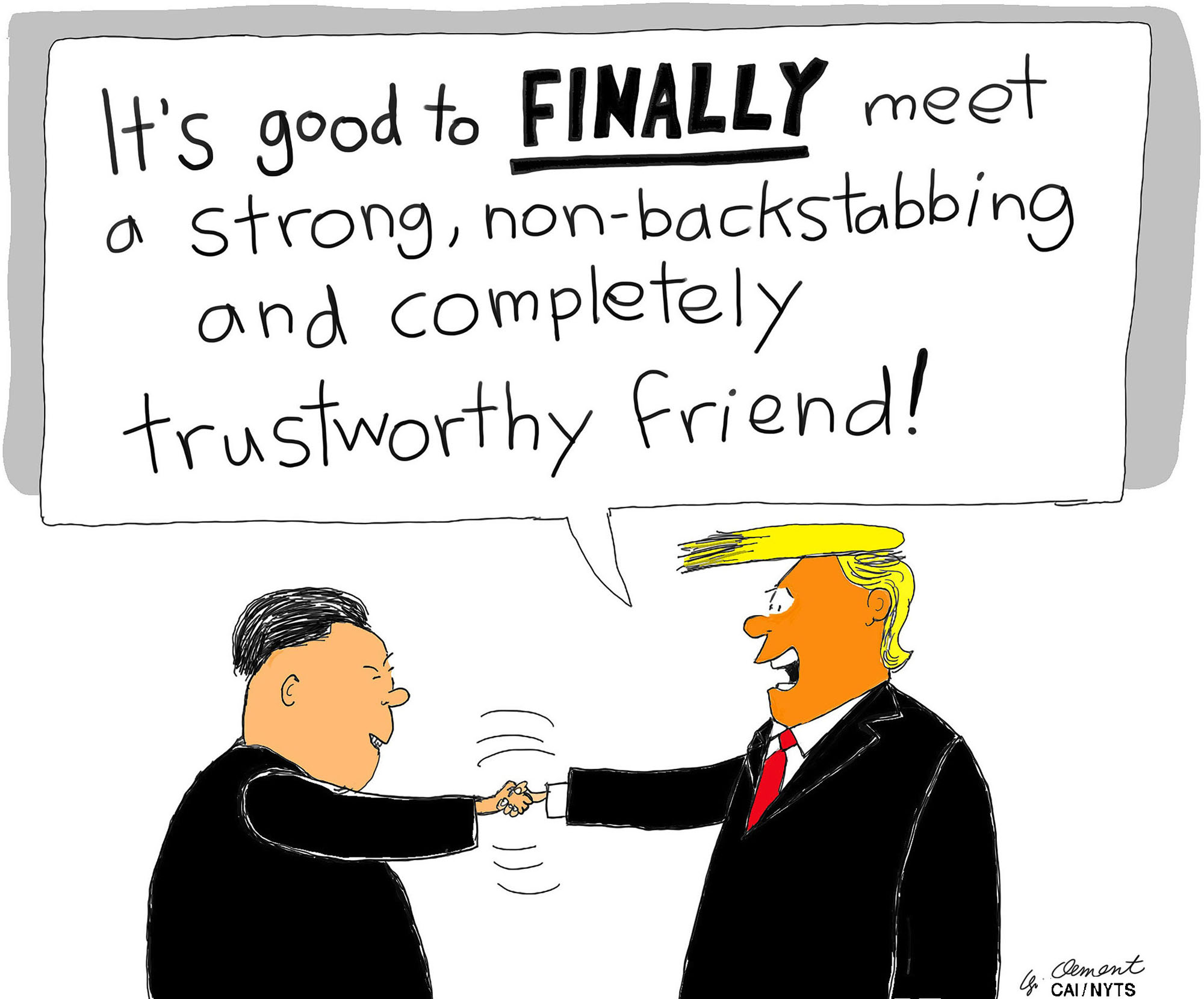Japan was so concerned that its security interests would be overlooked in a U.S. nuclear deal with North Korean ruler Kim Jong Un that Prime Minister Shinzo Abe visited the White House just before President Donald Trump left for Canada and Singapore. Yet Japan's strategic imperatives and interests were barely on Trump's mind when he met Kim. Despite Trump saying that he raised with Kim the decades-old North Korean abductions of Japanese citizens, Japan's interests got short-shrift.
With the Singapore summit yielding only a joint statement, Trump has bet on what he called a "very special bond" and "terrific relationship" with Kim to secure a real deal. It is worth remembering that Trump has said similar things about Abe and other world leaders, only to ignore their interests or turn on them later.
As Trump's announcement to suspend U.S. war games with South Korea underscored, he is seeking to narrowly advance American interests, especially saving money — a factor that he said could eventually lead him to bring back home the 32,000 American troops stationed in South Korea. A dilution of U.S. security commitments in Northeast Asia, however, is contrary to Japanese strategic interests.


















With your current subscription plan you can comment on stories. However, before writing your first comment, please create a display name in the Profile section of your subscriber account page.